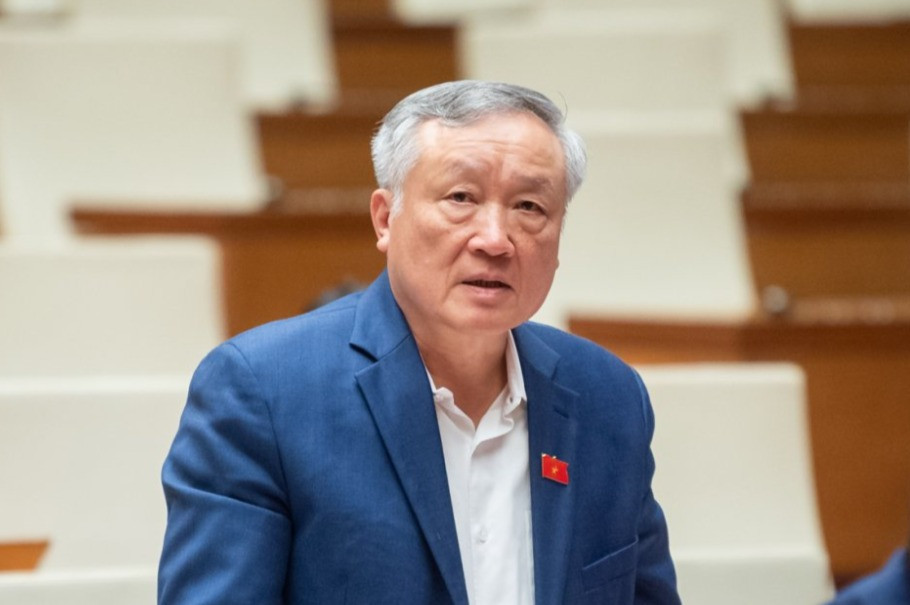
On November 22, after the National Assembly deputies discussed the draft Law on People’s Court (amended), Binh explained several controversial issues.
One of the most noteworthy issues is the disagreement among National Assembly deputies on whether courts are obligated to collect evidence when handling lawsuits.
Nguyen Thi Yen Nhi, vice chair of the Ben Tre provincial People’s Council, said there are two controversial opinions about the issue.
Some people don’t support the opinion on asking people to collect and provide evidence to the court. They said evidence collection is a difficult task for courts and professional officers, rather than individuals. Agencies and organizations may refuse to provide documents, or don’t provide enough documents despite courts’ requests.
Meanwhile, other people argue that collecting and providing evidence in civil cases are the responsibilities of involved parties, not the courts. This is international practice.
According to Nhi, previously evidence collection was assigned to involved parties in a lawsuit, but the 2014 Law on Organization of the People's Court assigned the task to courts.
Since the law took effect, court officers have faced difficulties collecting and clarifying evidence. In many cases, involved parties show their opposition and cause danger to court officers, while officers have to undertake a big workload at court.
Nguyen Huu Chinh, Chief Judge of the Hanoi People’s Committee, agrees with the opinion that courts do not have an obligation to collect evidence, saying that the principle fits the practice, trends, legal principles, and current procedural regulations.
“Investigation agencies and the people’s procuracy take the responsibility of collecting evidence to serve as a basis for indictment, but if courts think the evidence is not enough, they have the right to use supplements,” Chinh said, adding that this provision is consistent with the rule of fairness and presumption of innocence.
Truong Trong Nghia, a National Assembly deputy from HCM City, believes that it is necessary to have a policy on the court’s evidence collection.
Nghia said Vietnam is pursuing a Civil Law scheme, under which courts and judges preside over the consideration of evidence and if they find it necessary, they will collect evidence.
The Socialist Rule of Law State of Vietnam is governed under the leadership of the Party and the Constitution and it has people’s courts which do not exist in other countries.
He emphasized the specific conditions of Vietnam with gaps in intellectual standards between the rich and the poor, and rural and urban areas. Many people do not have conditions for full litigation. Because of this, if involved parties have to seek evidence, this puts a group of people at a disadvantage.
He said that evidence collection by the courts will not conflict with collection by involved parties. If parties collect evidence, they will naturally hide the evidence which may put them at a disadvantage.
According to Binh, the compilers of the law removed the provision about evidence collection by courts. This aims at dignifying the defendant's responsibility to defend himself and the plaintiff's right to collect evidence. Plaintiff’s task is not just to file a lawsuit.
Under current laws, courts have an obligation to collect evidence. However, the provision is unreasonable. If courts show evidence which can be advantageous to plaintiffs, it may face lawsuits raised by defendants, and vice versa.
He affirmed that what people expect from court is a fair and objective decision, not evidence collection.
Replying to Nghia’s opinions about the difficulties for citizens to access agencies to collect opinions, Binh said to solve the problem, the court will support citizens by sending written requests to the agencies which hold useful evidence and state that the agencies have the obligation to provide evidence to interested parties.
“Those who refuse to do as requested by the court will face sanctions,” Binh said.
Courts are not capable of collecting evidence for all lawsuits. “We have to handle 600,000 cases each year, but we have only 6,000 judges. Do you think we have enough officers to collect evidence for 600,000 lawsuits,” Binh said.
Tran Thuong